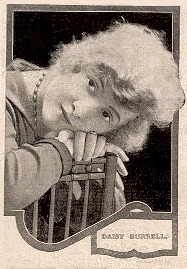Cast

- Miriam J. Sabbage – Sylvane Sheridan
- C. M. Hallard – Lord Louis Lewis
- Daisy Burrell – Jill Hargreaves
- Mary Rorke – Mrs Sheridan
- John Kelt – Butler
| The Bridal Chair | |
|---|---|
| Written by | G. B. Samuelson Roland Pertwee |
| Produced by | G. B. Samuelson |
| Starring | Miriam J. Sabbage C. M. Hallard Daisy Burrell Mary Rorke |
Production company | |
Release date |
|
| Country | United Kingdom |
| Languages | Silent English intertitles |
The Bridal Chair is a British silent motion picture of 1919 directed by G. B. Samuelson and starring Miriam J. Sabbage, C. M. Hallard, Daisy Burrell and Mary Rorke. A drama, it was written by Samuelson and Roland Pertwee.
The film was premiered at a Trade Show in July 1919. [1]
Sylvane Sheridan is a cripple in a wheelchair, engaged to Lord Louis Lewis, a faithful middle-aged man who resists the temptation to abandon her for other young ladies, such as Jill Hargreaves. He has vowed not to marry anyone else while Sylvane survives.
